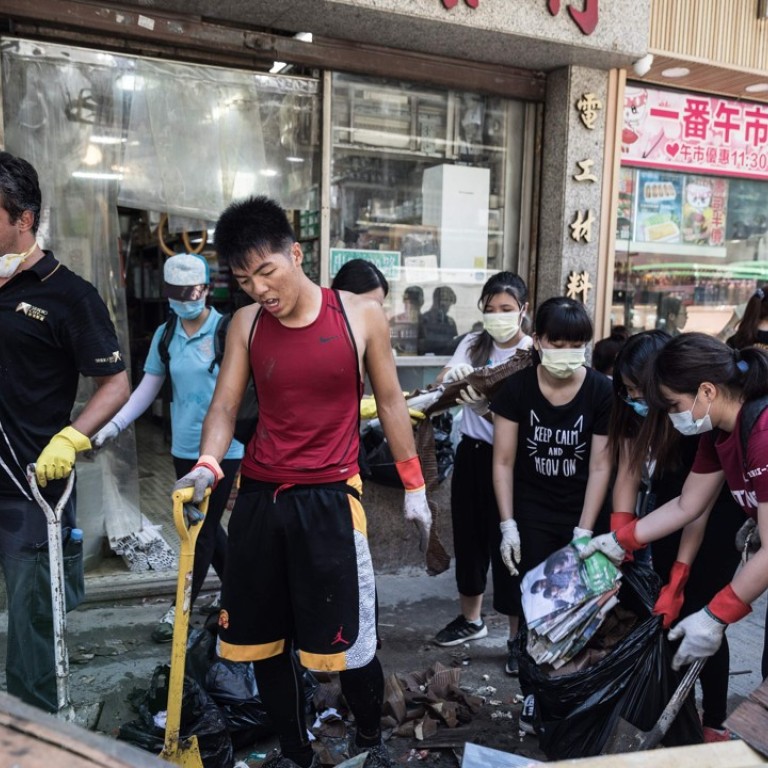
Grieving Macau residents recount horror of Typhoon Hato
Residents of Inner Harbour, one of the worst-hit areas of the city, recall their fears as the water rose and tell of the emotional scars they bear
A jumble of rubbish, broken Chinese porcelain pots, piles of old and wet boxes, damaged vehicles and broken wooden furniture were scattered in the streets in the days after the storm. Ip’s world – at the age of two – turned into a nightmare.
The worst typhoon that Macau has seen since 1968 left wounds not only in the city, but also in this boy. “He is still terrified. When something out of the ordinary happens, he starts crying,” said Ip’s grandmother, Leong Kwai-heng, 65.
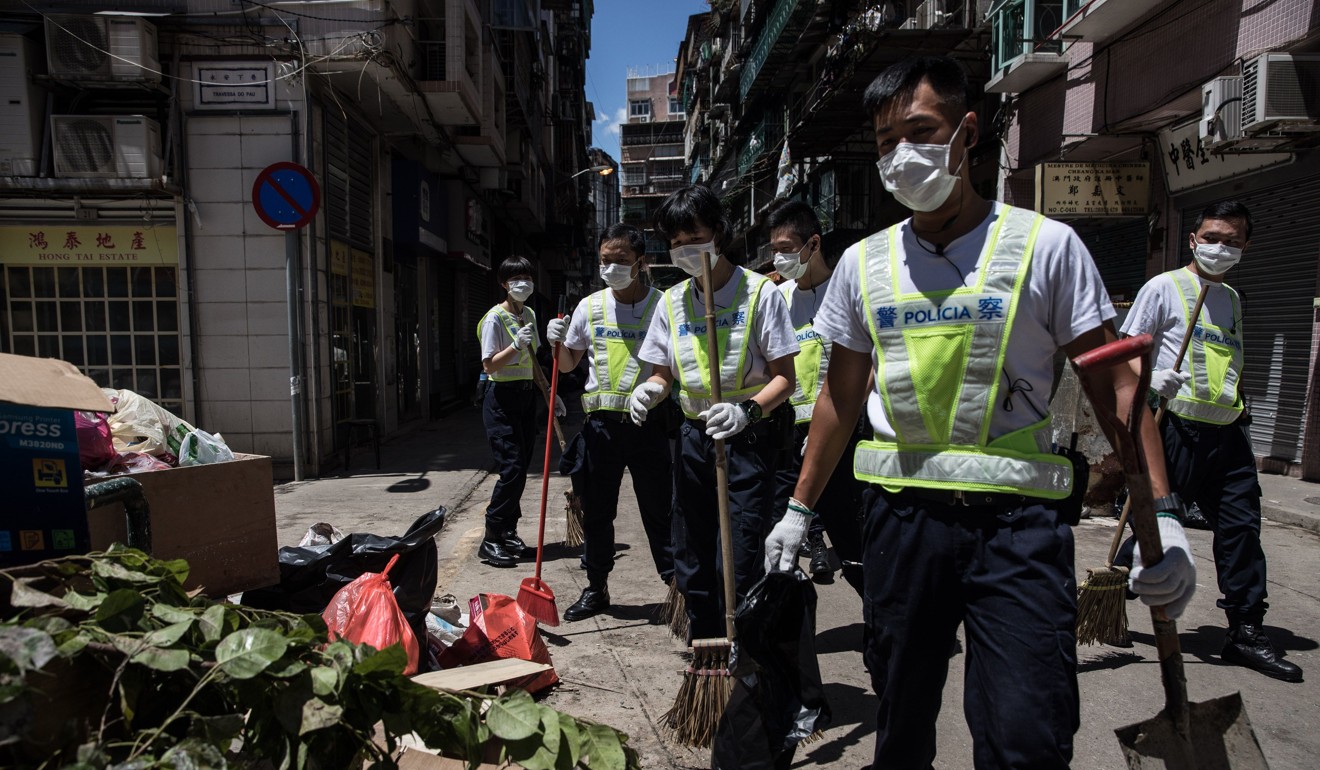
“That day, we ran to the first floor. The ground floor was full of water. He was really afraid ... He started screaming and crying when he saw the water coming, rising up and covering the stairs,” Leong recalled. “Our glass doors were broken and the power was out. We feared the water could reach our first floor,” she said, noting that it was 3 metres deep.
Not far from their antique store, two people drowned in the basement of a rice shop. Typhoon Hato claimed the lives of at least eight others across the city and left more than 240 people injured, hundreds of trees uprooted, billboards torn down and windows shattered.
The city went without electricity for several hours on Wednesday, and the water supply was not fully restored by Saturday.
Many Macau residents still without power as second storm barrels down on city
The authorities were also struggling to clear rubbish in the streets, as severe tropical storm Pakhar approached the city.
Every year, particularly during the tropical storm and typhoon season, residents and shop owners at Inner Harbour – a neighbourhood of traditional businesses mostly run by the elderly – expect water to come. Although this has been a long-standing problem the government had not resolved, the impact of a typhoon had not been this tragic in decades.
We could not imagine this ... It was the worst situation we have ever encountered
Hato was supposed to be just another typhoon.
Leong, who has run the shop since 1968 with her husband, said they had not taken any special precautions before the storm. “We could not imagine this ... It was the worst situation we have ever encountered,” she said.
As the three ran up their metal stairs, they saw people trying to save their cars and motorcycles as the streets quickly filled with water. “We were really afraid but there was nothing we could do. We begged them to leave their cars and motorbikes, so they could save their lives. We really thought they could drown,” Leong said.
“Afterwards, there was so much mud and rubbish inside the shop ... It was very smelly,” she said as she swept her floor.
Leong said they hadn’t calculated their losses yet. “I think to lose property is the least thing to worry about. Because our neighbours died, it made me learn that the fact that we and our relatives are fine is the most important thing. I hope other people realise this too,” she said.
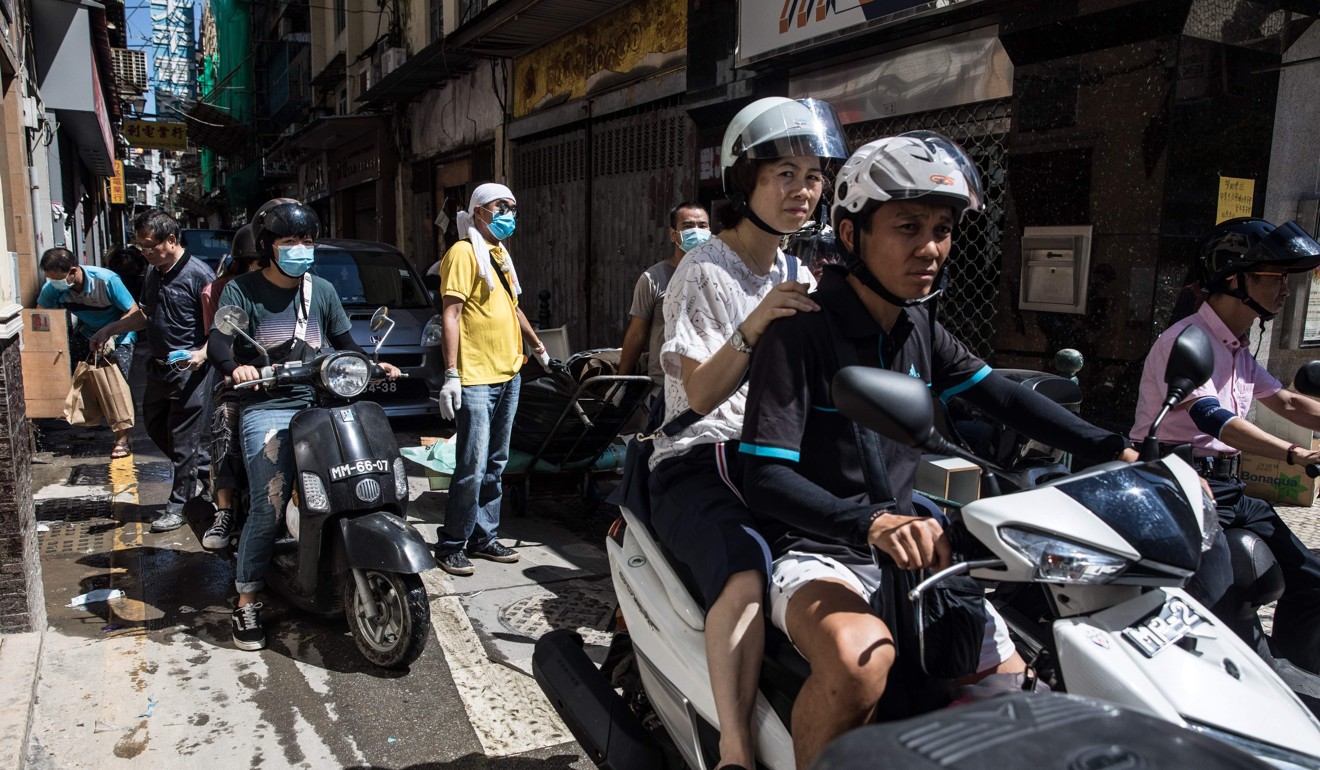
Not far away from Leong’s shop, Chao A-soi’s radio would be blaring out old songs if it was a normal day. There is instead the sound of trucks removing rubbish from the streets. He sits in front of his shop with a lantern, ignoring the smell of rotting debris, while greeting dozens of volunteers distributing food and water.
The streets’ bleak mood matched Chao’s feelings. “I am heartbroken,” he said, referring to the daughter and son of an old couple who died when they tried to get some rice out of their shop’s basement.
T3 signal issued as severe tropical storm Pakhar approaches Hong Kong
“They were caught by water. The parents asked them to leave, but they did not agree,” Chao said. “I heard they were going to move to a new shop in just a matter of days. And in a few seconds the lives of their children were gone.”
He said he also felt sorry for those who drowned in car parks, raising questions about the suitability of underground car parks in areas prone to flooding. “But this is Macau, there is little space,” he shrugged.
The 61-year-old man said the government should have taken preventive measures and warned people earlier, so they could have prepared. But he did not completely blame the authorities. “This was a natural disaster,” he said.
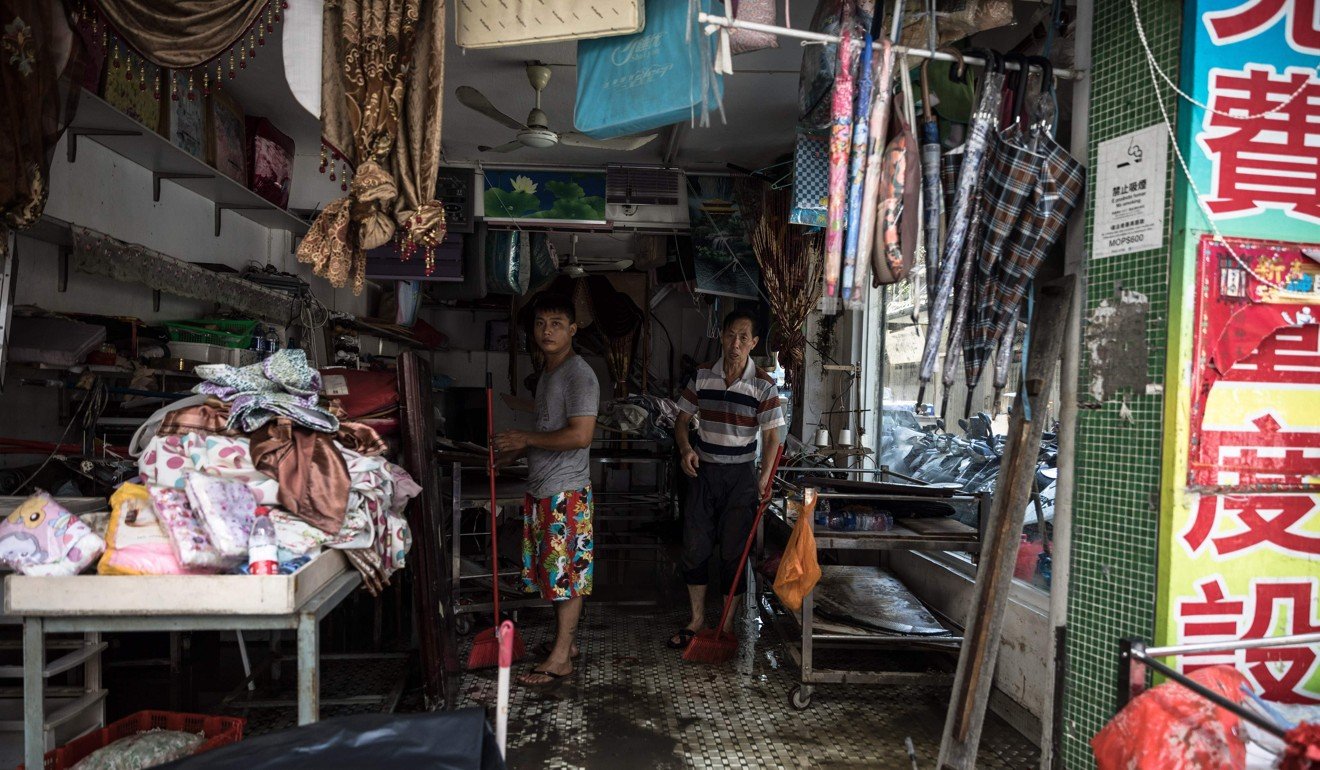
Chao was not at his shop when the water covered all of his antiques, because he had been warned not to go there by a neighbour. The small shop is filled to the rafters with antiques collected over the past 40 years, including Chinese porcelain, dozens of records, 8-millimetre movies, a giant projector, photos, ancient books and old electronic devices.
Chao said he could not calculate his losses. “I love every single item in my shop. They are invaluable,” he said, holding a schoolbook from the 1970s. “No money can cover this,” he said.
The man recalled that when another typhoon hit Macau in 2008, he asked for a loan of 200,000 patacas from the government. He was allowed half of it. “I only finished paying it back now. It seems that I will have to borrow money again,” he said.
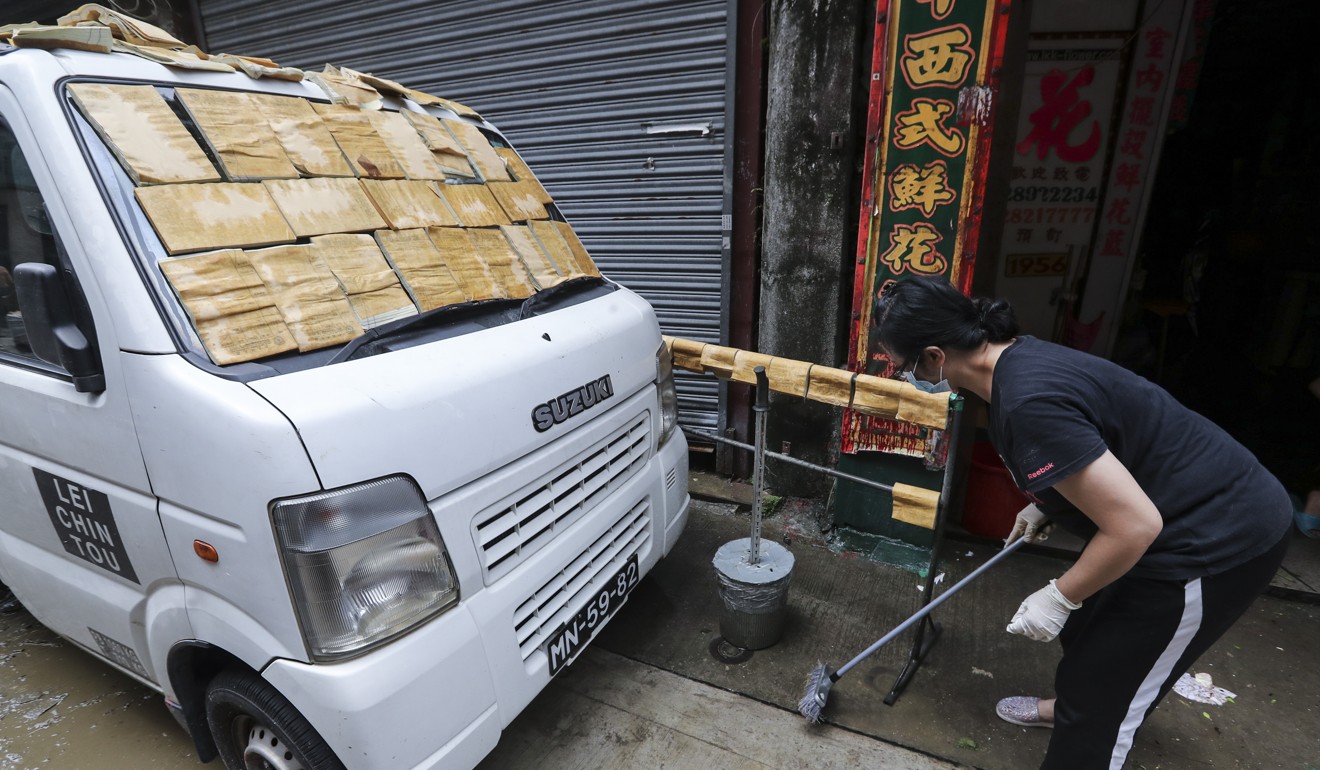
As the city is preparing for another tropical storm, Chao said he would not do much more cleaning in his shop. He said he intended to wait patiently for the bad weather to pass and hoped the storm would not claim any more lives. “I hope both people and the government will learn from what just happened,” he said.
Mr Ip, the owner of a music shop in the neighbourhood, said that he was not too concerned about another storm. “I am not afraid anymore. This is already a mess,” he said. “So I will just let it go.”
The 65-year-old man said he lived the worst on Wednesday. “This was the worst typhoon I ever encountered since I was born,” said the man, who has run a shop in the neighbourhood for about 40 years.
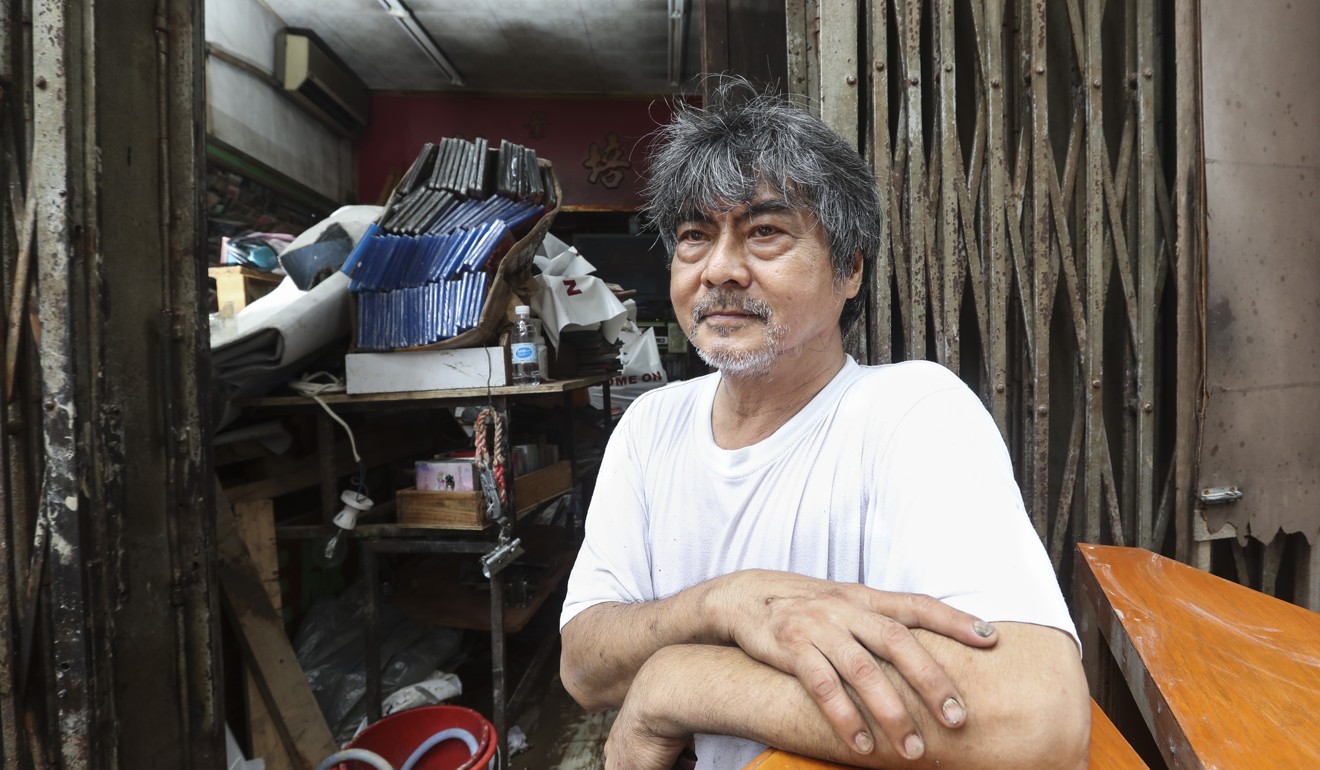
When the typhoon battered Macau and the floods kicked in, Ip was at his shop and had no time to escape. He had to climb up a piece of furniture used to display CDs. “I was standing here for about 20 minutes ... I was really afraid because there were lots of bulky objects and trash coming towards me,” he said, pointing to where he could stand. “Everyone was in their own shops, but we could not do anything to help each other,” he said.
We are all grieving. I never thought this could happen in Macau
Eddy Ko, 28, who was helping a friend near the rice shop where two people died, also thought on Wednesday that his life could come to an end.
“I almost died. Suddenly, I had water up to my knees and then after a minute it reached my chest,” he said. Ko had to swim with live fishes from nearby markets and rubbish. “I had to help my wife too, because she can’t swim. The water was so strong,” he recalled.
Ko said they survived thanks to the kindness of strangers. “I knocked on a door and they opened it. Lots of water came in, but they saved us,” he said.
Ko told his story of survival in front of the house where two people died. The shop’s facade was fully open to the street as rubbish filled the space where rice and Japanese biscuits used to be sold. Its stillness contrasted with the cleaning work in neighbouring shops.
Around the city that is considered the world’s gaming hub, from the central area to the outlying island of Coloane, sirens often interrupted the unusual silence and darkness rarely seen in the city.
“We are all grieving. I never thought this could happen in Macau,” Ko said.

